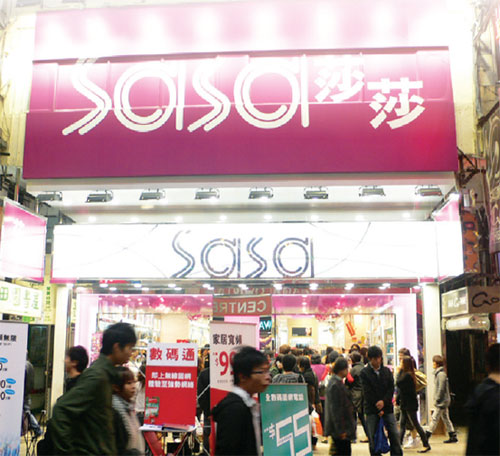Business as usual
Updated: 2015-08-28 09:26
By Zhou Mo in Hong Kong(HK Edition)
|
|||||||||
The slide of the yuan may have made traveling to and shopping in Hong Kong more costly, but mainland officials and potential visitors still believe its impact is not as dramatic as made out to be.
The mainland central bank on Aug 11 lowered the yuan's daily mid-point trading price against the US dollar by 1.86 percent, with a similar move the following day, which saw the yuan pushed down by another 1.62 percent against the US currency.
The moves also placed the yuan in a weaker position against the Hong Kong dollar, which is pegged to the greenback. On Tuesday, the mid-point rate had risen to 0.8254 yuan per Hong Kong dollar from 0.8036 on Aug 11, according to data from the Bank of China.
However, Hong Kong officials do not seem unduly worried about the impact of such depreciation.
Yiu Si-wing, a lawmaker representing Hong Kong's tourism sector, recently said that negative influence on the tourism industry would only emerge when the yuan falls by as much as 10 percent.
The completion of the Hong Kong-Zhuhai-Macao Bridge, the Guangzhou-Shenzhen-Hong Kong Express Rail link and other big public projects, including the West Kowloon Cultural District (WKCD), over the next few years would see more tourists coming to Hong Kong, he noted.
Expected completion dates for the bridge and rail link are 2017 and 2018, respectively, and 2020 for the first phase of the WKCD.
But Yiu also warned that incidents like demonstrations against parallel goods trading would dampen visitor enthusiasm and urged the government to help adjust Hong Kong people's attitude toward visitors. Hostile protests against parallel trading, especially at border crossings, have put off many bona fide mainland tourists from visiting the SAR.
Falling visitor numbers is already having an impact on the local retail sector, which has seen sales, especially for luxury items, drop significantly. The number of overall tourists visiting Hong Kong fell by 8.4 percent on-year last month, according to the city's Travel Industry Council. Across the border however, Shenzhen residents with "one visit per week" permits to visit Hong Kong, scaled down from the earlier multiple-entry permits, say the scale of yuan depreciation so far is not enough to affect shopping decisions.
"The additional cost caused by a weaker yuan when shopping in Hong Kong is very little indeed," said Han Zhengyi, a 32-year-old office clerk in Nanshan district.
"For a product worth HK$1,000, you only need to pay 20 yuan ($3.12) more now. That is still better than buying it on the mainland, where the price may be 1,000 yuan (or about HK$1,210 at Thursday's rates)."
Han's colleague Zhan Yan agreed. "The depreciation of the yuan will have a bigger influence on those intending to buy big-ticket items in Hong Kong, like jewelry, luxury bags or electronic devices. For those who shop for daily necessities like me, the exchange rate change is not a major source of concern," she said.
A shopkeeper at a Shenzhen store selling goods imported from Hong Kong said the slide of the yuan has not affected business.
"We will adjust prices of our products according to the variation in the exchange rate between the Hong Kong dollar and renminbi. So far we have not noticed any change in business," he said.
However, the price tags tell a different story. Many items on the shelves have been marked down -prices of several brands of baby milk powder, for example, have generally been reduced by 10 yuan each.
Meanwhile, the falling yuan has spurred more Shenzhen residents to buy property in Hong Kong, as perceptions of eroded value of mainland property make investors eye better returns across the border. A buyer from Shenzhen recently splashed out as much as HK$55.1 million to buy five units at the newly opened Century Link residential project in Tung Chung.
At Stars By The Harbour in Hung Hom, another project launched last weekend, more than 10 percent of buyers were from the mainland, according to media reports.
sally@chinadailyhk.com
|
Shenzhen residents say a sliding yuan may have made purchases in Hong Kong slightly costlier but it is still cheaper than buying on the mainland. |
(HK Edition 08/28/2015 page12)
